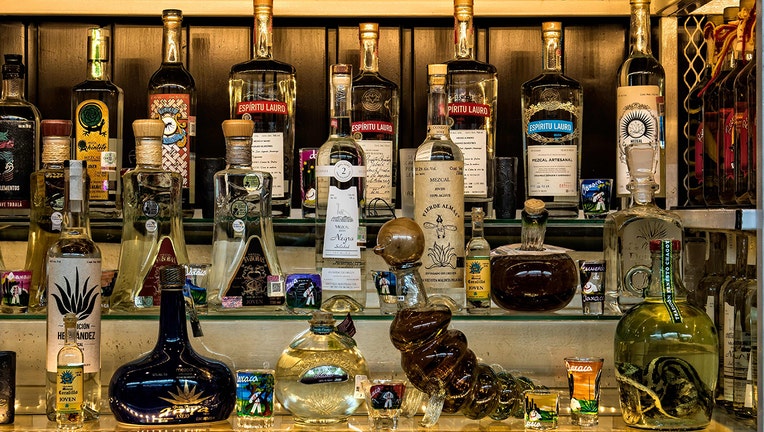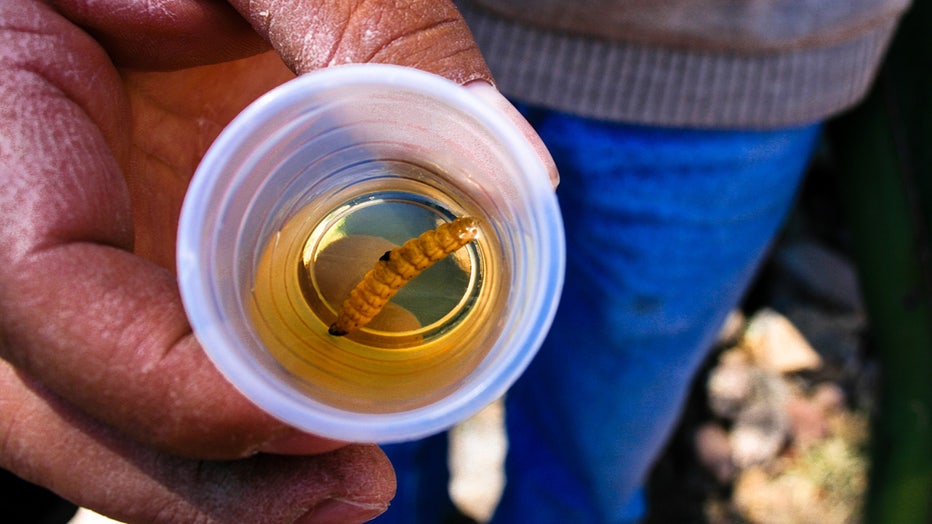Iconic 'tequila worm' in mezcal bottle is not really a worm – here's what it is

A selection of bottles of fine mezcal from a range of Mexican producers are displayed for sale at Benito Juarez market in Oaxaca, Mexico on February 23, 2017. (Credit: OMAR TORRES/AFP via Getty Images)
GAINESVILLE, Fla. - For decades, the mezcal worm, commonly known as the "tequila worm," has been placed inside bottles of mezcal as a marketing strategy to enhance the flavor and color of the drink.
But a new study shows that the "tequila worm" may not be the insect that many believe it is.
Researchers at the University of Florida sequenced DNA from different "worms" that were found in many different branded bottles of mezcal purchased between 2018 and 2022 from both North American and Mexican distributors.
Of the 21 larvae subjected to DNA extraction, 18 yielded DNA sequences that were suitable for analysis.

Americans drink more alcohol now than they did 100 years ago
Drinking in America is not only on the rise, but at a higher level now then when the substance was banned a century ago.
Published on March 8 in Peer J, the team found that in all cases, a single species of agave redworm moth, Comadia redtenbacheri, was in each bottle.
Akito Kawahara, a lead researcher of the study, told FOX Television Stations he was surprised by the results.
"It was not expected, because there has been some debate in the literature as to the specific species of ‘worm’ that is in the bottles, other than that it is of an insect," Kawahara explained. "It was not a butterfly or a beetle, as some have thought."
The researchers found larvaes’ had DNA that was more than 99% identical.
The team said the findings affirm the importance of the agave redworm moth for the mezcal industry.
"Science can help study the world and check for the food we eat and drink for accuracy. There is no doubt that the ‘worms’ are larva of a moth," Kawahara continued.
Researchers cited a limitation of the study, noting the possibility of additional brands and varieties that were not sampled that could contain larvae of other insect species.

(Niciak / iStock / Getty Images Plus)
RELATED: Samuel Adams masters non-alcoholic beer with Just the Haze, remasters Boston Lager
Kawahara said he hopes more scientists will conduct more research like this. His team is additionally conducting a project on butterfly evolution using DNA from the insects. He says this study will be published in the near future.
Mezcal is a traditional, Mexican distilled alcoholic beverage made from the plant genus Agave Linnaeus. While more than 70% of mezcals are distilled and bottled in Oaxaca, Mexico, mezcal is now exported throughout the world to keep up with growing demand.
This story was reported from Los Angeles.

